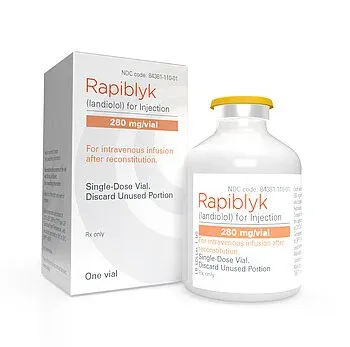Landiolol and Alcohol/Food Interactions
There is 1 alcohol/food/lifestyle interaction with landiolol.
Alcohol (Ethanol) Landiolol
Moderate Drug Interaction
Consumer information for this interaction is not currently available.
MONITOR: Many psychotherapeutic and CNS-active agents (e.g., anxiolytics, sedatives, hypnotics, antidepressants, antipsychotics, opioids, alcohol, muscle relaxants) exhibit hypotensive effects, especially during initiation of therapy and dose escalation. Coadministration with antihypertensives and other hypotensive agents, in particular vasodilators and alpha-blockers, may result in additive effects on blood pressure and orthostasis.
MANAGEMENT: Caution and close monitoring for development of hypotension is advised during coadministration of these agents. Some authorities recommend avoiding alcohol in patients receiving vasodilating antihypertensive drugs. Patients should be advised to avoid rising abruptly from a sitting or recumbent position and to notify their physician if they experience dizziness, lightheadedness, syncope, orthostasis, or tachycardia. Patients should also avoid driving or operating hazardous machinery until they know how the medications affect them.
Switch to professional interaction data
Landiolol drug interactions
There are 427 drug interactions with landiolol.
Landiolol disease interactions
There are 16 disease interactions with landiolol which include:
- bradycardia/AV block
- cardiogenic shock
- heart failure
- pulmonary hypertension
- pheochromocytoma
- acidosis
- diabetes/hypoglycemia
- hypersensitivity
- hyperthyroidism
- hypotension
- ischemic heart disease
- liver disease
- Prinzmetal's angina
- PVD
- reactive airways disease
- renal dysfunction
More about landiolol
- landiolol consumer information
- Check interactions
- Compare alternatives
- Side effects
- Dosage information
- During pregnancy
- Drug class: cardioselective beta blockers
- En español
Related treatment guides
Drug Interaction Classification
| Highly clinically significant. Avoid combinations; the risk of the interaction outweighs the benefit. | |
| Moderately clinically significant. Usually avoid combinations; use it only under special circumstances. | |
| Minimally clinically significant. Minimize risk; assess risk and consider an alternative drug, take steps to circumvent the interaction risk and/or institute a monitoring plan. | |
| No interaction information available. |
See also:
Further information
Always consult your healthcare provider to ensure the information displayed on this page applies to your personal circumstances.


